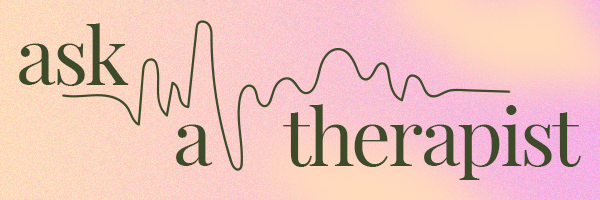Ask A Therapist: My Partner Wants An Open Relationship & I Don’t. What Now?
Photo by Refinery29
Ever wondered what you'd say to a therapist, given the chance? We asked Dr Sheri Jacobson, a retired psychotherapist with over 17 years' clinical experience and the cofounder of Harley Therapy Platform (UK Online Therapists), for advice on the things we worry about in private.
Have a question for a therapist? Submit yours for Sheri.
Question:
My partner of three years recently introduced the idea of an open relationship as something he'd want. We’ve never talked about it before and I’d never considered it. With a bit of reflection I don’t think it’s what I want. We haven’t talked about it since but it’s made me worried about our future. I’m scared to talk about it properly but I know we have to. How should I approach it?
AdvertisementADVERTISEMENT
- Charlie, 28
Answer:
To start, I'd suggest leaning into some self-reflection as you have done, just to take stock of where you are within yourself. This could be journalling, therapy, or discussion with a neutral friend. It's important to identify how you think yourself without any other suggestible influence.
The next step would be to initiate a discussion between you and your partner. This is very, very difficult – it takes a lot of courage to bring up sensitive issues and to initiate discussion. Therapy is often the easiest place to do this because it's a space where you expect to talk about touchy subjects, and there are not that many spaces where that happens. Finding a way to make that space for your conversation is important. Then you should focus on discussing your viewpoint while simultaneously wanting to hear the other person's point of view. You could ask for them to explain what's going on in their minds and what they're considering. And you should genuinely listen. If possible, place yourself in their shoes and try to understand what it is they're looking for.
What is the driving force for their desire to open up the relationship? It could be a very high sexual appetite, a wish for variety, or that they're unhappy with something within the couple relationship that maybe could be worked upon. It's often very important within a couple dynamic to try and find out what the other person is seeking – perhaps there are other ways it can be found in the relationship if that's what you want to do? It's also worth talking about protection mechanisms. To the extent that we can predict likely outcomes or likely reactions, is there anything that we can have in place in case a person doesn't feel uncomfortable or adequately protected?
AdvertisementADVERTISEMENT
The most important thing is if they're willing to experiment with this that the communication channels should ideally be open. It's important that you feel secure that you will be able to share your perspective with someone and that they can hear you, understand you, respect your needs and preferences and be open to compromise.
This brings up the really interesting question of when should you push beyond your comfort zone and when should you trust your gut? The answer is really personal as to what your limits of tolerance are and how much flexibility you think you would have been trying a new thing. In this case, it isn't just a case of trying a new food or new hobby. It's a lot less risky to try an interesting new food group than it is for someone to have multiple sexual partners. On the one hand, there is the potential risk of unprotected sex and STIs, and on the other you can't just remove it from your diet like you would a new food you don't like. In a relationship dynamic, there's another person who has to reach the same conclusion. Which isn't to say you shouldn't try it, but that it is a factor to be aware of.
If you do come to the realisation that this is not what you want but your partner still does want it, therapy is a beautiful place for this kind of discussion to happen. Sometimes in the therapeutic space, you can talk it through and still live with different life goals and preferences. Of course sometimes, it's just not workable for one or both parties and therefore you would work towards an amicable separation, even if it involves a shared home or being financially tied to one another. Generally speaking, there's the option to let go if it doesn't seems to be working overall, and do so in a in a way that mitigates harm to everyone. All in all, a lot of discussion needs to be had. But you never know, in some cases it might even bring the couple closer together than before.
AdvertisementADVERTISEMENT







